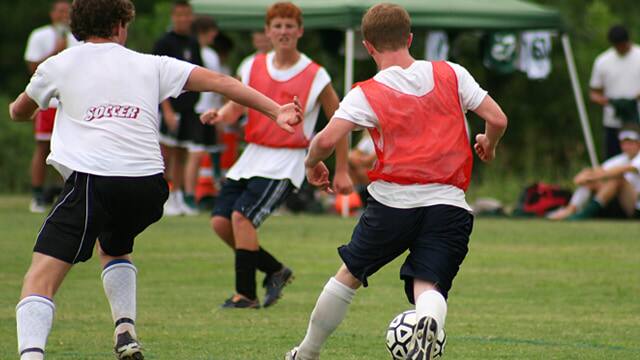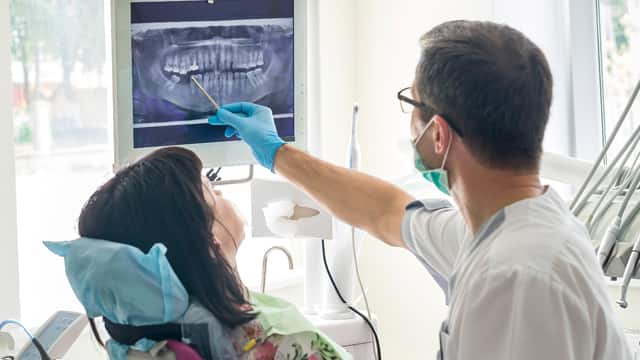What Happens When a Tooth Breaks
A broken tooth can range from a chip in the hard enamel exterior, or to the complete breakage of an area, leaving the dentin and pulp exposed. Tooth enamel contains no nerves or blood vessels, so enamel loss may cause no pain. When the dentin or pulp is exposed to the air, however, the tooth often hurts. Bacteria can infect exposed pulp over time, causing more pain, discoloration of the remaining enamel, and sensitivity to temperature changes. There may also be pain from the injury that broke the tooth, whether or not the dentin or pulp is exposed.
What You Should Do
If you break a tooth, it's important to avoid hard foods and cover the sharp edges of the remaining tooth with dental wax or chewing gum to prevent gum damage and soreness of the cheeks and tongue.
What to Do With a Broken Tooth:
- Gather the broken pieces and place them in a clean, dry container for transport to the dentist.
- Rinse the remaining tooth with warm water to remove dirt and debris.
- If an injury broke the tooth, place a cold compress on the area to help prevent swelling.
- Call your dentist to arrange an appointment. If you can see yellow dentin or red, exposed pulp, see a dentist immediately.
Complications of Mouth Injuries:
Sometimes a broken tooth isn't the only outcome of an injury to the mouth. If you've experienced trauma to your mouth, other complications could include the following:
Chipped tooth —If there is no pain and the chip is small, it's up to you to decide if, when, and how the tooth should be repaired. Depending on the size of the chip, it can be smoothed or cosmetically corrected. Other options include veneers, crowns, and fillings. Ask your dentist to explain these options. If a filling or artificial tooth becomes chipped, it should be replaced.
Cracked or broken teeth —Cracked and broken teeth should be repaired as soon as possible to prevent further damage. Root canal therapy or tooth extraction may be necessary. If a crack affects the enamel and dentin of the tooth, a crown is frequently the best treatment. Keep in mind that cracks are not always visible, even on X-rays. Symptoms may involve pain while chewing and sensitivity to cold and possibly hot foods and liquids, as well as air, which may over time become more pronounced.
Tooth knocked out —The key to successfully reattaching a tooth is to get it reimplanted in the socket as soon as possible. With each minute that passes, more of the cells on the root of the tooth die. If possible, rinse the tooth with water only, then reimplant the tooth at the site and hurry to a dentist as quickly as possible. The tooth should be picked up by the crown only and must not be allowed to dry. The best chance for success is reimplantation within the first 30 minutes, with chances still good for up to two hours. It may be necessary for your dentist to do a root canal treatment one to two weeks after the tooth has been stabilized.
Permanently lost teeth, whether they've been removed by a dentist or accidentally knocked out, should be replaced. Options for replacing lost teeth include bridges, dentures, and implants.
Broken jaw —If you suspect you or someone else has a broken jaw, do not move it. The jaw should be secured in place with a handkerchief, necktie, or towel tied around the jaw and over the top of the head. Cold compresses should be used to reduce swelling. Go immediately to a hospital emergency room, or call a dental professional.
What Happens After
The correct treatment for a broken tooth depends on the extent of the damage. The dental pulp that is infected with bacteria will die over time. It must be removed and replaced with a plastic filling in a root canal procedure. Dental professionals sometimes wait to see if the nerve of the tooth is dying, in which case a temporary crown may be placed over the broken tooth. If the pulp is not infected, but the tooth is missing a large chip, a crown will restore the tooth's cosmetic appearance. Usually, the tooth can be repaired when only a small chip is lost.
Preventive measures such as avoiding chewing on ice cubes and hard candies, wearing a mouthguard if you grind your teeth, and sports mouthguards can help prevent broken teeth, but accidents still happen. Following a few simple steps can help dental professionals provide the best possible treatment when a tooth breaks. Eventually, they will restore your smile.
Oral Care Center articles are reviewed by an oral health medical professional. This information is for educational purposes only. This content is not intended to be a substitute for professional medical advice, diagnosis or treatment. Always seek the advice of your dentist, physician or other qualified healthcare provider.
ORAL HEALTH QUIZ
What's behind your smile?
Take our Oral Health assessment to get the most from your oral care routine
ORAL HEALTH QUIZ
What's behind your smile?
Take our Oral Health assessment to get the most from your oral care routine






.png)








